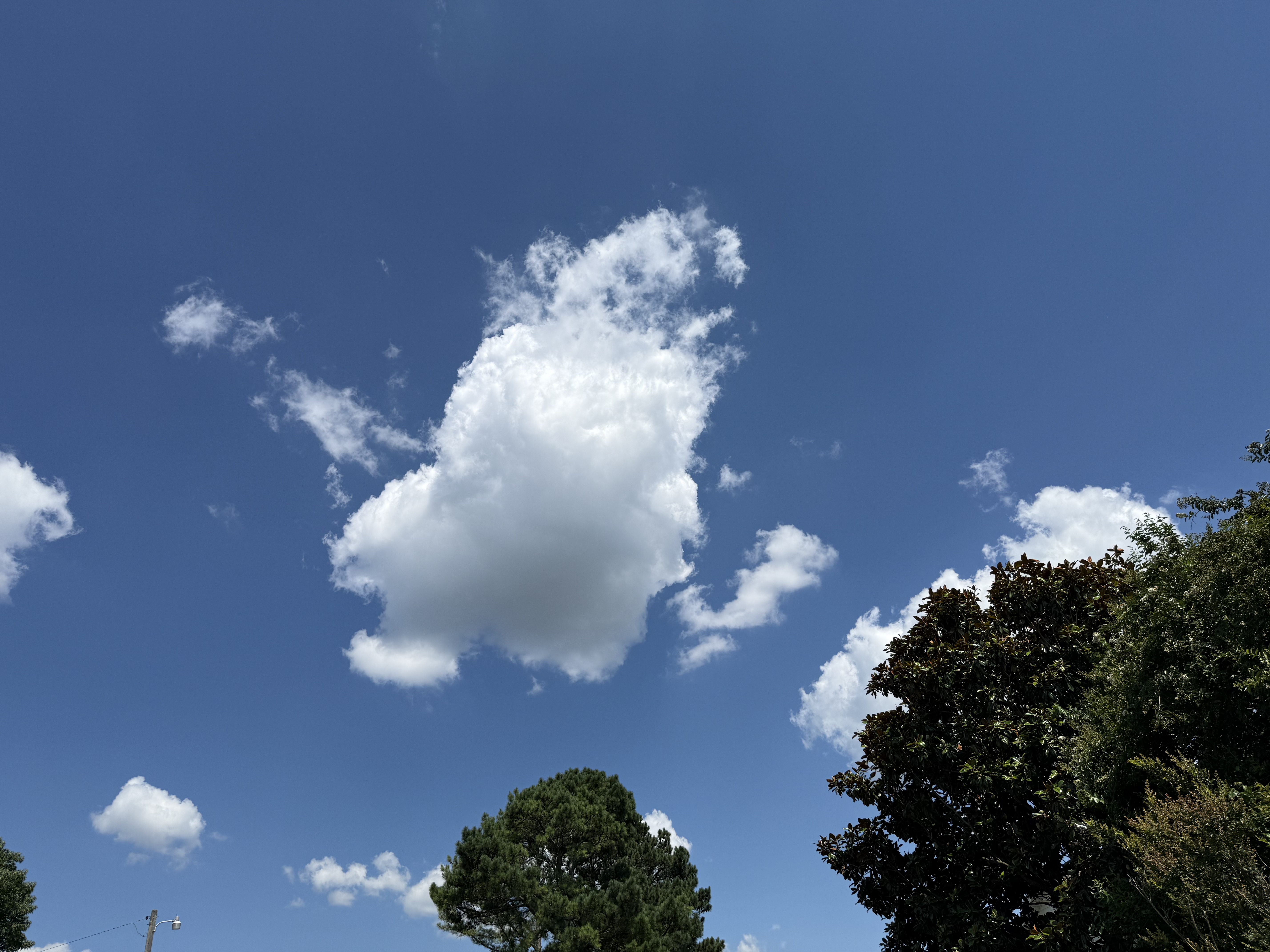
Willi, the Unum
The Alabama sun pressed down on Willi Creek’s bent shoulders like the old sorrows themselves – heavy, thick, bleaching the sky white but finding no purchase on the dark river-stones of his Cherokee bones.
The red earth beneath his worn boots was the same earth that swallowed the tears of the Long Walk, stubborn as memory when wet, blowing in ghosts when dry, yet now it held his steady tread, his roots dug deep beside the oaks and pines that sighed like elders.
Those woods watched him, draped in moss like tattered burial shrouds, kudzu smothering old stories but never his knowing – he moved through them quiet as smoke, feeling the press of ancestors in the humid air that wrapped Sheffield like a damp fist.
Storms built quick over him, purple-black and fierce as old angers, cracking the world open with lightning that mirrored the sudden ache in his joints, dumping rain that turned roads into sucking red rivers – reminders of trails washed away, trails endured.
And the people? Cut from that same sun-baked, storm-tested earth. Black hands, white hands, brown hands – all stained the same deep rust as Willi’s own knuckled-up grip on the shovel.
They were the pines enduring, the oaks rooted, shaped by the heat and the history etched into the land like his grandpa’s stories etched into him. Their slow talk, their watchful eyes, the set of their shoulders bearing the weight – Willi saw himself reflected there. Out of this fierce sun, this stained earth, these sighing woods and violent skies, they were all forged. Just like him. He worked harder in it, because of it, for them.
The Alabama sun, thick as honey, dripped onto Willi Creek’s porch. Eighty-five years. His back felt each one. His hands, brown and knotted like old roots, rested on his knees. Sheffield slept quiet around him. But Willi didn’t sleep much. Not anymore. Too much remembering in the bones.
His people knew remembering. The old sadness lived deep. Like stones in the creek bed. The Long Walk. The Trail Where They Cried. Names spoken soft now, like wind in dry corn. Names that cut deep. Names that meant leaving. Names that meant gone. His grandpa’s grandpa carried that walk. Carried it in silence. Passed it down like a dark river.
Willi felt the river. Felt its cold tug. Saw the faces sometimes, in the dust motes dancing in the afternoon light. Faces worn smooth by sorrow. Faces pushed out. Faces not wanted.
But Willi Creek lived now. Here. In Sheffield. Brick houses. Neighbors. Black, white, brown. Like the land itself – many colors, one place. E Pluribus Unum. He liked the sound of that. Out of many, one. He saw it. Felt it. In the hard work. In the shared sweat.
He rose slow. Bones creaked. Sun climbed higher. He picked up his shovel. Not heavy. Just metal and wood. But it felt right. Good weight.
Down the street, young Maria Hernandez. Her fence sagged. Storm hit it hard. Willi saw it yesterday. Saw her worry. Saw her husband gone driving truck. Saw her children watching. He walked. Slow steps. Measured steps. Like his father walked the old paths.
Maria came out. Saw him. Saw the shovel. Her eyes widened. “Mr. Willi! You don't–”
"Hush now, child," Willi said. His voice was gravel, soft. "That post needs digging. Earth needs moving." He spat on his hands. Gripped the shovel. Dug. The Alabama clay resisted. Like memory resists forgetting. He dug harder. Sweat stung his eyes. Salt like the old tears.
He remembered the stories. The pushing out. The louder words 'you don't belong here'. The hurting tone. Deep, deep hurt. He dug. The post hole deepened. Maria brought water. Cool. Good. Old Mr. Johnson from down the way, skin dark as rich earth, stopped. Saw Willi working. Saw Maria watching. He fetched his own tools. Said nothing. Just started on the next post. Together. Digging.
Later, Mrs. Gunderson, pale as milk, brought lemonade. Sweet and sharp. Willi drank. Felt the sun. Felt the ache in his shoulders. Felt the good ache of work done.
This was the land now. Their land. His land. Not land taken from his ancestors. Land shared. Land worked. Land lived on. He helped not because he forgot the river of tears. He remembered it always.
He helped because he remembered. He helped so the river didn’t drown them now. Helped so Maria’s children knew fences get mended. Knew neighbors help. Knew hands, different colors, could lift the same weight.
He worked harder. Not from anger. Not from shame. From knowing. Knowing the fragile thing they built here. Brick by brick. Fence post by fence post. Knowing it needed tending. Like a garden. Like a heart. He saw the young ones watching. Saw the old ones nodding. Saw the shared sweat on the ground.
The fence stood straight before sundown. Strong. Maria hugged him. Quick, fierce. Her tears warm on his worn shirt. Not tears of sorrow. Tears of belonging.
Willi walked home. Slow. Tired. The porch welcomed him. The old sadness hummed its tune, low and deep, under his ribs. Always would. But over it, louder, stronger, sang the sound of hammers fixing. The sound of shared water gulped. The sound of "Thank you, Mr. Willi." The sound of one people, making one place.
He sat. Bones settled. The sun bled red over Sheffield. Willi Creek, eighty-five, Cherokee, American, breathed the cooling air. His hands, dirty, rested. They were bridges. Between the long-gone cries and the children laughing down the street. Between the many and the one.
He watched the first star blink. Hard work tomorrow too. Always more work. He smiled, small and sure. Dawn always came. He’d be ready. Digging. Helping. Building. Remembering the river, but walking the new land. He continued working harder.